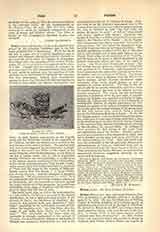

Fisher, PHILIP (an alias, real name THOMAS COPLEY), missionary, b. in Madrid, 1595-6; d. in Maryland, U.S., 1652. He was the eldest son of William Copley of Gatton, England, of a Catholic family of distinction who suffered exile in the reign of Elizabeth. He arrived in Maryland in 1637, and, being a man of great executive ability, took over the care of the mission, “a charge which at that time required rather business men than missionaries”. In 1645, Father Fisher was wantonly seized and carried in chains to England, with Father Andrew White, the founder of the English mission in America. After enduring many hardships he was released, when he boldly returned to Maryland (February, 1648), where, after an absence of three years, he found his flock in a more flourishing state than those who had oppressed and plundered them. That he made an effort to enter the missionary field of Virginia, appears from a letter written March 1, 1648, to the Jesuit General Caraffa in Rome, in which he says: “A road has lately been opened through the forest to Virignia; this will make it but a two days’ journey, and both places can now be united in one mission. After Easter I shall wait upon the Governor of Virginia upon business of great importance.” Unfortunately there is no further record bearing on the projected visit. Neill, in his “Terra Marisa” (p. 70), and Smith, in his “Religion under the Barons of Baltimore” (p. VII), strangely confound this Father Thomas Copley of Maryland with an apostate John Copley, who was never a Jesuit. Father Fisher is mentioned with honorable distinction in the missionary annals of Maryland, and, according to Hughes, was “the most distinguished man among the fourteen Jesuits who had worked in Maryland“.
EDWARD P. SPILLANE

